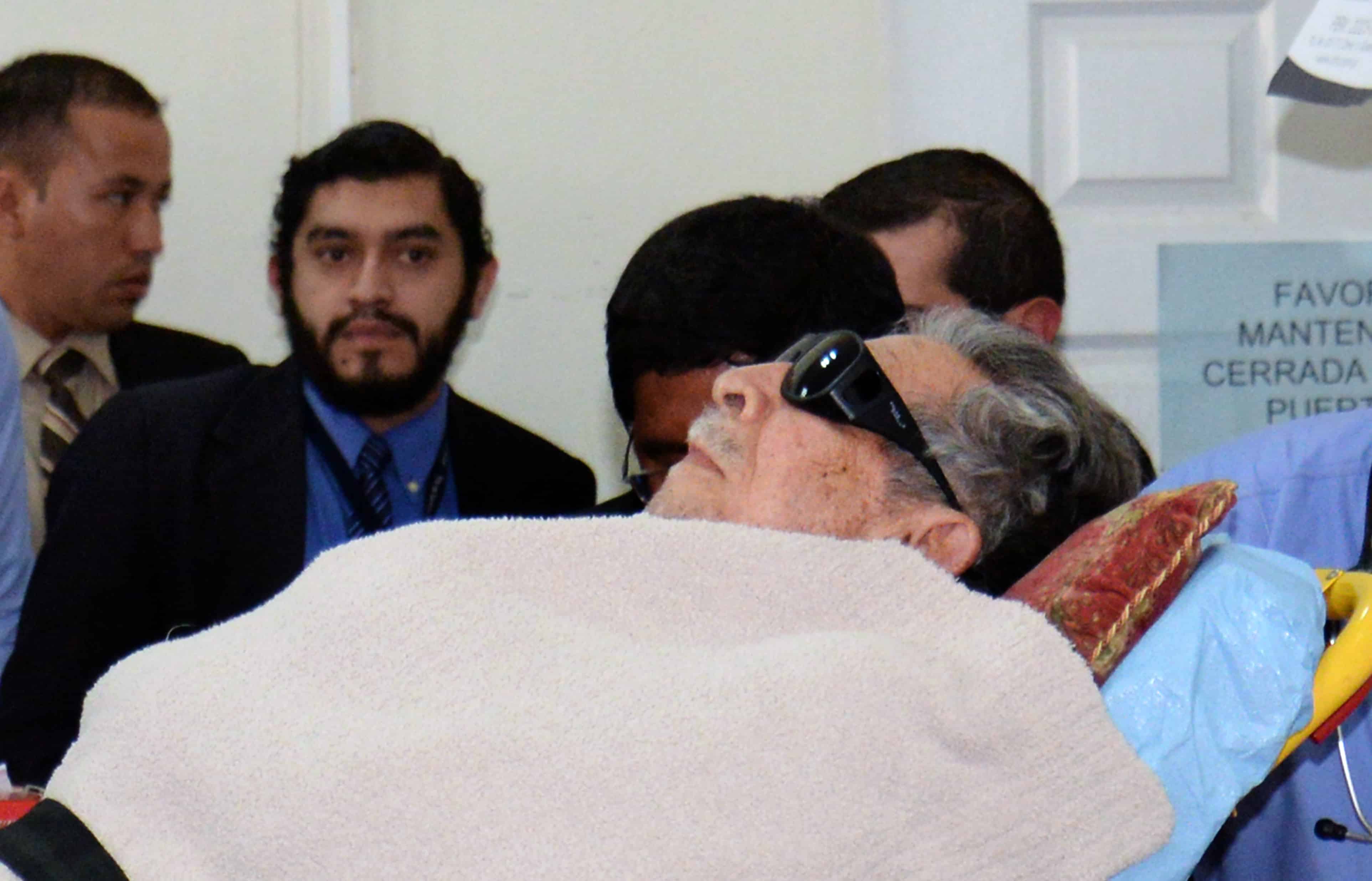GUATEMALA CITY – The retrial against Guatemalan ex-dictator Efraín Ríos Montt starts Thursday – though it’s still unclear whether the aging former general accused of genocide will actually stand trial.
An official forensic report found last month that Ríos Montt, 89, lacked the mental competence to go before the court. His lawyers have asked for the trial to be suspended based on the report.
Nevertheless, Judge María Eugenia Castellanos told reporters before the start of the trial Thursday that Ríos Montt would testify via videoconference from his home in Guatemala City, where he’s under house arrest.
Ríos Montt’s former head of military intelligence, José Rodríguez, is also being retried. He arrived at court Thursday in a wheelchair after undergoing a knee operation.
Héctor Reyes, lawyer from the Center for Legal Action in Human Rights (CALDH), which is an adjunct prosecutor in the case, told AFP that the forensic report wasn’t enough to determine Ríos Montt’s mental capacity, and that the trial should begin as planned. Political analyst Luis Linares agreed, saying the tribunal should seek a second opinion on Ríos Montt’s condition if it decides to grant the defense’s injunction and suspend the trial.
“It will seem like impunity is again at work” if an independent second opinion isn’t sought, Linares said.
Ríos Montt, who took over as president of Guatemala in 1982 after staging a coup, is accused of overseeing the murder of 1,771 Maya Ixil indigenous Guatemalans during his rule, which lasted until 1983. He and his former head of military intelligence, José Rodríguez, were tried for the crime of genocide in 2013. Ríos Montt was found guilty and sentenced to 80 years in prison, but the trial was annulled over supposed technical errors. Rodríguez was found not guilty.
The Guatemalan Constitutional Court ordered a retrial to start last Jan. 5, but the defense had one of the judges, Jeannette Valdez, removed from the tribunal because she had stated an opinion on genocide in a 2004 academic thesis. The trial was then postponed until July.
One of the ex-dictator’s lawyers, Jaime Zamora, told AFP that the forensic report is “conclusive and determinant,” and that his client shouldn’t stand trial because of his “chronic, progressive and incurable illness.”
Other medical evaluations from the National Forensic Sciences Institute, which issued the controversial report, have found that Ríos Montt suffers a series of chronic health problems typical of people his age, including a weak heart and a spinal lesion, which keeps him bedridden.
Ríos Montt’s presidency is considered the bloodiest time period of Guatemala’s 36-year civil war, which left more than 200,000 people dead or disappeared between 1960 and 1996, according to a United Nation’s truth commission.
Dictator’s daughter may be allowed to run for president
While the legal wrangling in the genocide case continues, Guatemalan courts are also occupied with a case involving Ríos Montt’s politician daughter, Zury Ríos. On Wednesday Guatemala’s Supreme Court ruled provisionally that Ríos could run for president, overruling the Election Tribunal’s prohibition of her candidacy.
The Guatemalan Constitution prohibits close family members of former dictators from holding the country’s highest office. Still, the Supreme Court found that “no legal argument exists for impeding [Ríos’] presidential candidacy.”
Elections are scheduled for Sept. 6. Zury Ríos is the chosen presidential candidate for the conservative Vision with Values party.
The Electoral Tribunal must now defend its earlier decision to deny Ríos’ candidacy. The Supreme Court will then make a final ruling.






